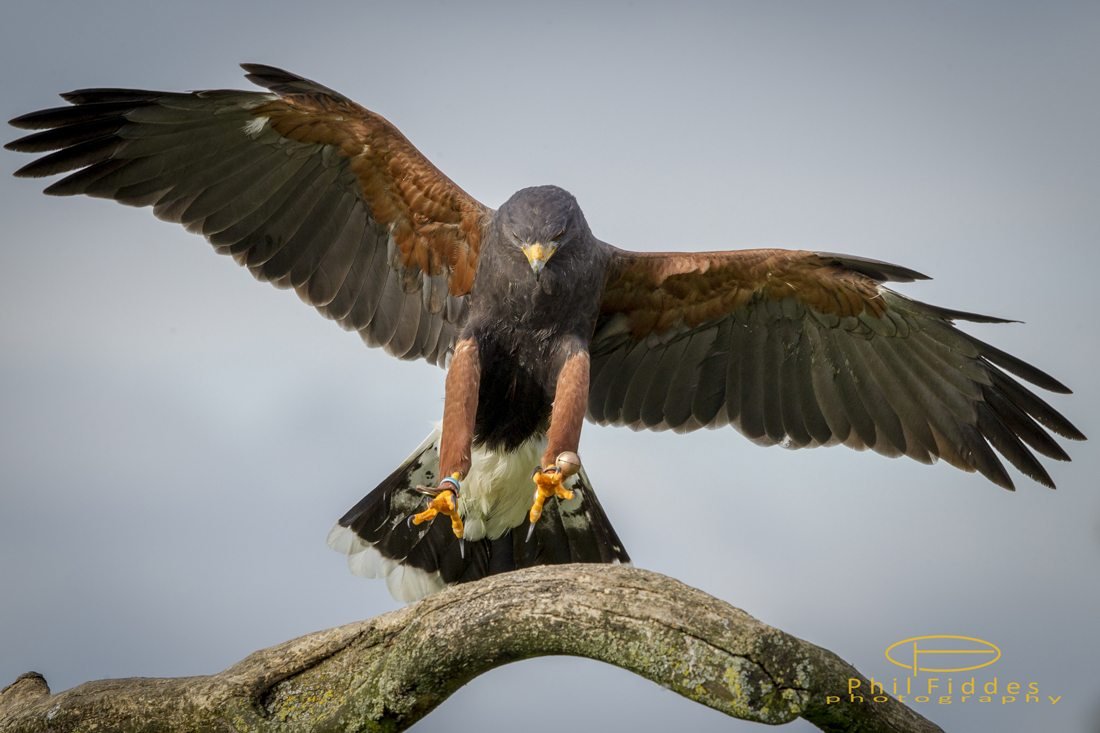07555337568

Caring for a Harris Hawk is both a privilege and a responsibility that requires dedication, knowledge, and a deep understanding of the bird’s unique needs. In the United Kingdom, where falconry enjoys a rich tradition and a thriving community of enthusiasts, providing optimal care for Harris Hawks is paramount to their health and well-being.
Housing: Harris Hawks require spacious aviaries or mews that provide ample room for exercise and enrichment. Adequate perching, nesting, and protection from the elements are essential considerations when designing or selecting a suitable enclosure.
Diet: A balanced diet is crucial for maintaining the health and vitality of Harris Hawks in captivity. A varied menu of whole prey items, supplemented with high-quality commercial diets, ensures that the bird receives essential nutrients and maintains a healthy weight.
Health Monitoring: Regular veterinary check-ups, preventative healthcare measures, and vigilant observation of the bird’s behavior and physical condition are vital aspects of Harris Hawk care. Prompt attention to any signs of illness or injury can help prevent serious health issues and ensure a long and fulfilling life for the bird.
Training: Positive reinforcement-based training methods, such as operant conditioning and falconry training techniques, are used to establish trust, build a strong bond, and teach desired behaviors to Harris Hawks. Consistency, patience, and respect for the bird’s individual personality are key principles of effective training.
By prioritizing the welfare of Harris Hawks and providing them with attentive care, UK falconers play a crucial role in preserving the legacy of falconry and ensuring a bright future for these remarkable birds of prey.
